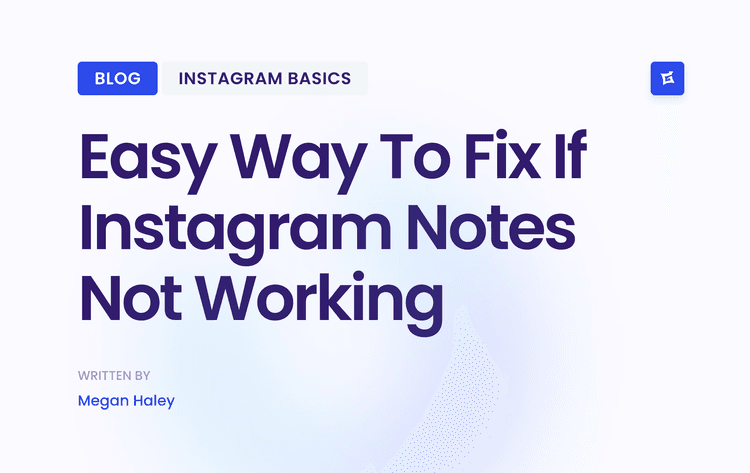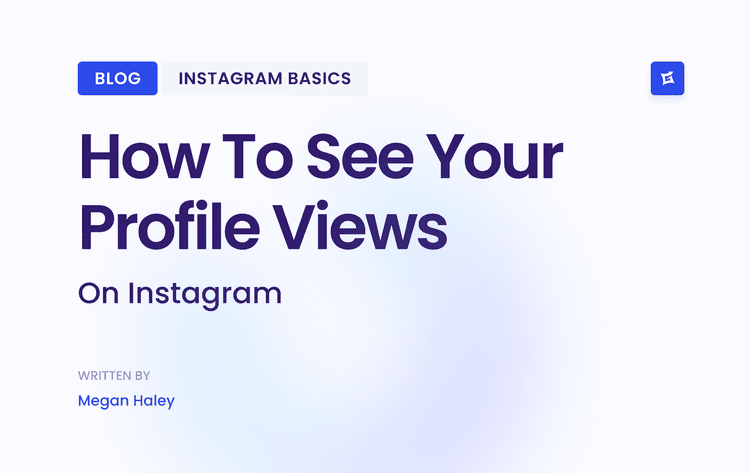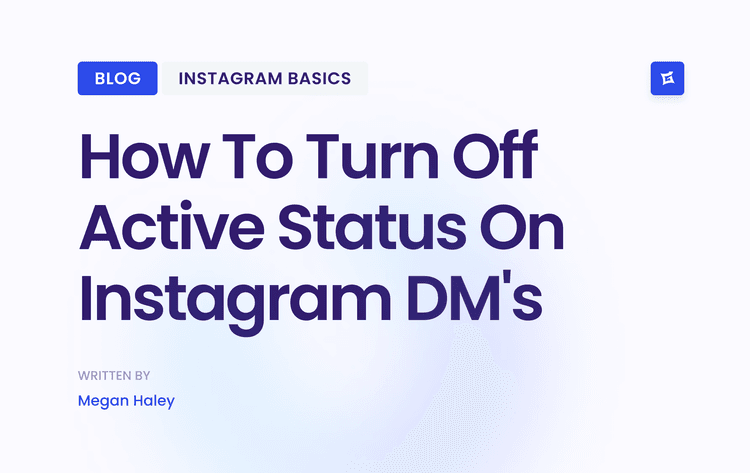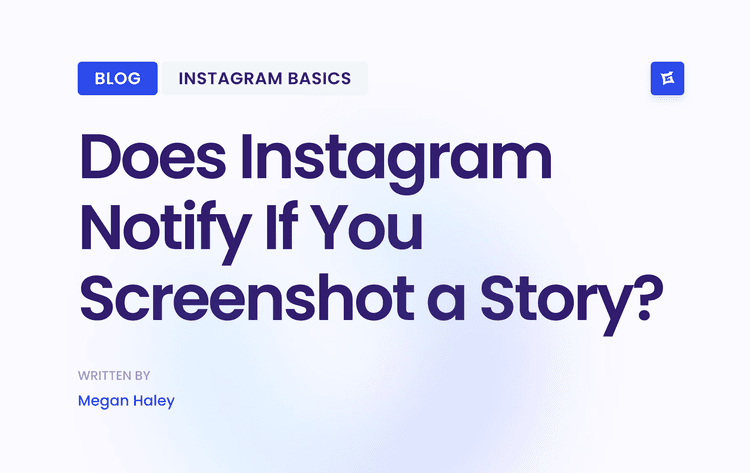Why Smart Agents Are Winning With Social Media
Moving Past Traditional Tactics
Old-school marketing approaches, such as print advertisements or direct mailers, often cast a wide but impersonal net. While these methods once dominated, their impact is dimming as people increasingly spend their time online. Social media, however, provides a lively and direct path to potential clients, enabling personalized conversations and community building. Top-performing agents recognize this change and are investing in developing a robust digital footprint.
These forward-looking professionals are using various platforms to build trust and authority in what can feel like a very crowded online space. They do this by consistently sharing useful information, showcasing their knowledge of the local market, and being accessible for questions. This steady, genuine interaction is what distinguishes them and makes their approach to social media for real estate agents so powerful.
The Power of Digital Connection and Measurable Returns
Beyond just getting seen, social media for real estate agents is excellent for nurturing genuine relationships. It's a venue for back-and-forth dialogues, sharing client successes, and even offering a peek into the agent's life, all of which make the agent more relatable and help build lasting connections. These relationships frequently lead to a reliable flow of referrals and repeat clients, which are essential for a thriving real estate career.
The results aren't just based on feelings; they're supported by clear data. For example, using social media in real estate has proven to be very effective in terms of return on investment (ROI). By 2025, a significant 60% of real estate agents indicated that their social media marketing efforts yielded their highest ROI. You can explore more about this real estate social media data to see the numbers. This clearly shows why astute agents are making these platforms a priority.
Meeting New Buyer Expectations
This evolution is also fueled by shifts in buyer psychology. Today's clients, especially those from younger generations, expect businesses to be easily reachable and open online. They often research agents thoroughly on social platforms before even thinking about making initial contact. A strong social media identity communicates professionalism, current relevance, and a contemporary way of doing business, which is vital for any social media plan for real estate agents.
Agents are successfully converting followers into clients by:
Regularly offering high-value content that answers client questions and addresses their concerns.
Presenting properties with eye-catching visuals and engaging narratives.
Actively interacting with their audience through comments, direct messages, and live sessions.
Fostering a community around their brand, making followers feel connected and valued.
By adopting these methods, smart agents are doing more than just finding leads; they are constructing durable businesses built on a foundation of trust and strong digital rapport.
Building a Professional Presence That Buyers Trust
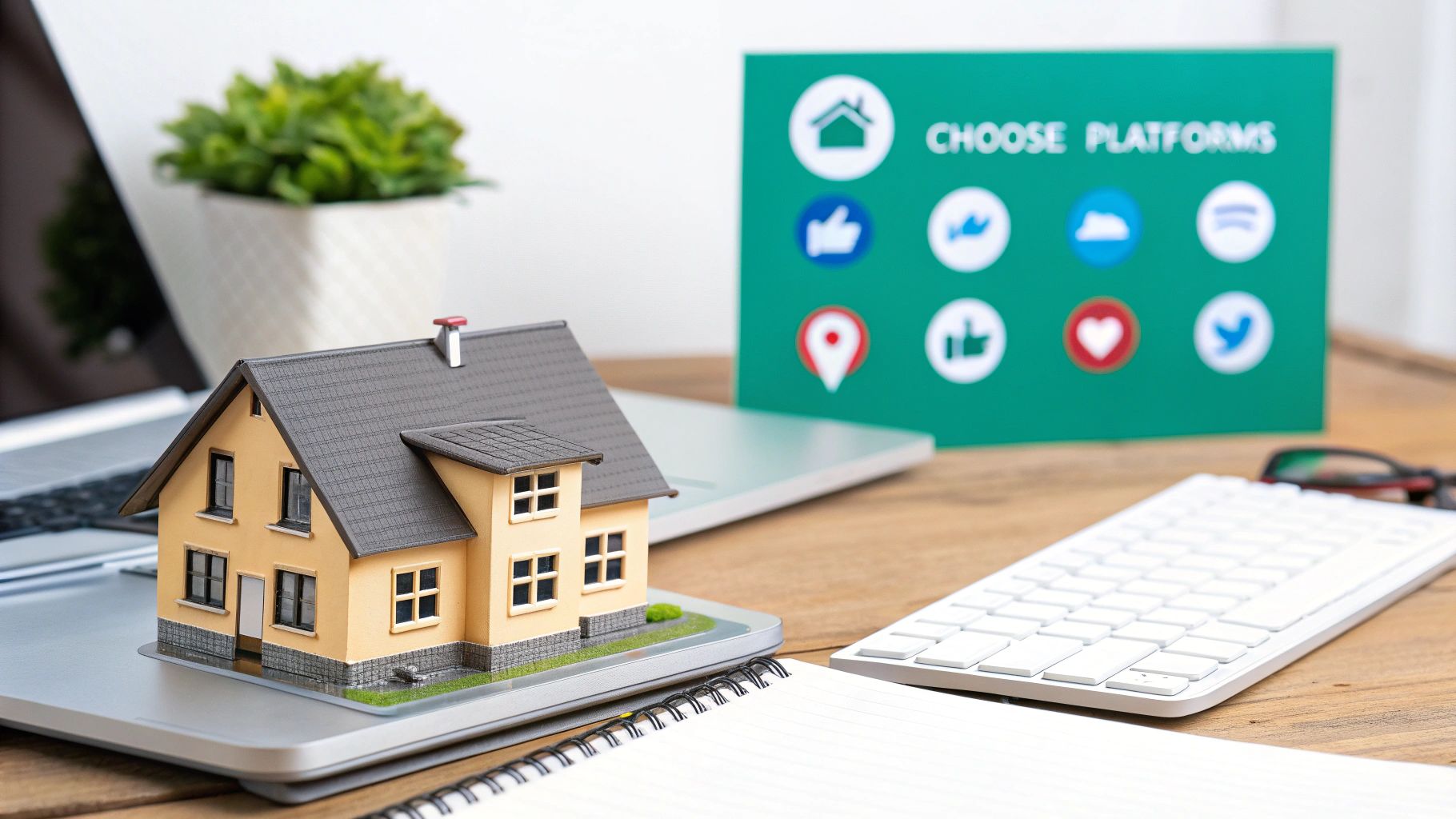
Think of your social media account as your always-open digital shop window, building on the rapport you establish online. For many potential clients, it’s the first stop to check out your expertise and see if you’re a good match, often well before they even think about calling. That first online look heavily influences their choices.
It's true, many buyers do their own online "digging," shaping their opinions based on what your profiles show (or don't). This means your strategy for social media for real estate agents needs to be thoughtful, designed to inspire confidence right from their first interaction. A polished profile immediately communicates your professionalism and solid grasp of the market.
Key Profile Elements That Build Immediate Trust
To create a social media profile that people find both convincing and trustworthy, a few key pieces need to fit together perfectly. It’s like carefully crafting your professional image for an online audience that wants genuine information and a real sense of who you are.
Your Digital Handshake: The Bio: This is your chance to make a strong first impression. Your bio needs to clearly state who you are, what you specialize in (like luxury properties, helping first-time buyers, or specific neighborhoods), what makes you different, and a straightforward call to action, such as "visit my website" or "send a DM."
Visual Cohesion: A professional headshot is a must-have. Beyond that, make sure your cover photos and the overall look of your profile are consistent and top-notch, showcasing your brand’s personality and professional style.
Content That Speaks Volumes: What you share is incredibly important. Concentrate on topics that highlight your real market knowledge, like detailed market updates, features on local neighborhoods, and useful advice for both buyers and sellers.
Paying attention to a robust online community is more important than ever. Buyers are increasingly favoring real estate agents with a strong social media account; in fact, studies show that by 2025, 71% of buyers will select their agent based on social media activity. You can explore these buyer trends further to see how preferences are evolving. This trend highlights why having a refined and active online profile is essential.
The Art of Being Authentic Yet Authoritative
Finding that sweet spot between being yourself and showcasing your professional expertise is crucial for connecting with the right clients. People naturally relate to other people, but they choose to hire experts. So, your content needs to let your personality come through while also consistently proving your professional skills.
For instance, giving a peek into a day of property showings or sharing a client's success story (always with their okay) can make your brand feel more human. Posting about your involvement in the community or a local event you're part of also demonstrates your commitment to the area. When these genuine moments are combined with solid real estate advice, they make a strong impact. This well-planned use of social media for real estate agents can position you as not just another agent, but the clear and trusted expert in your area.
Creating Visuals That Sell Properties
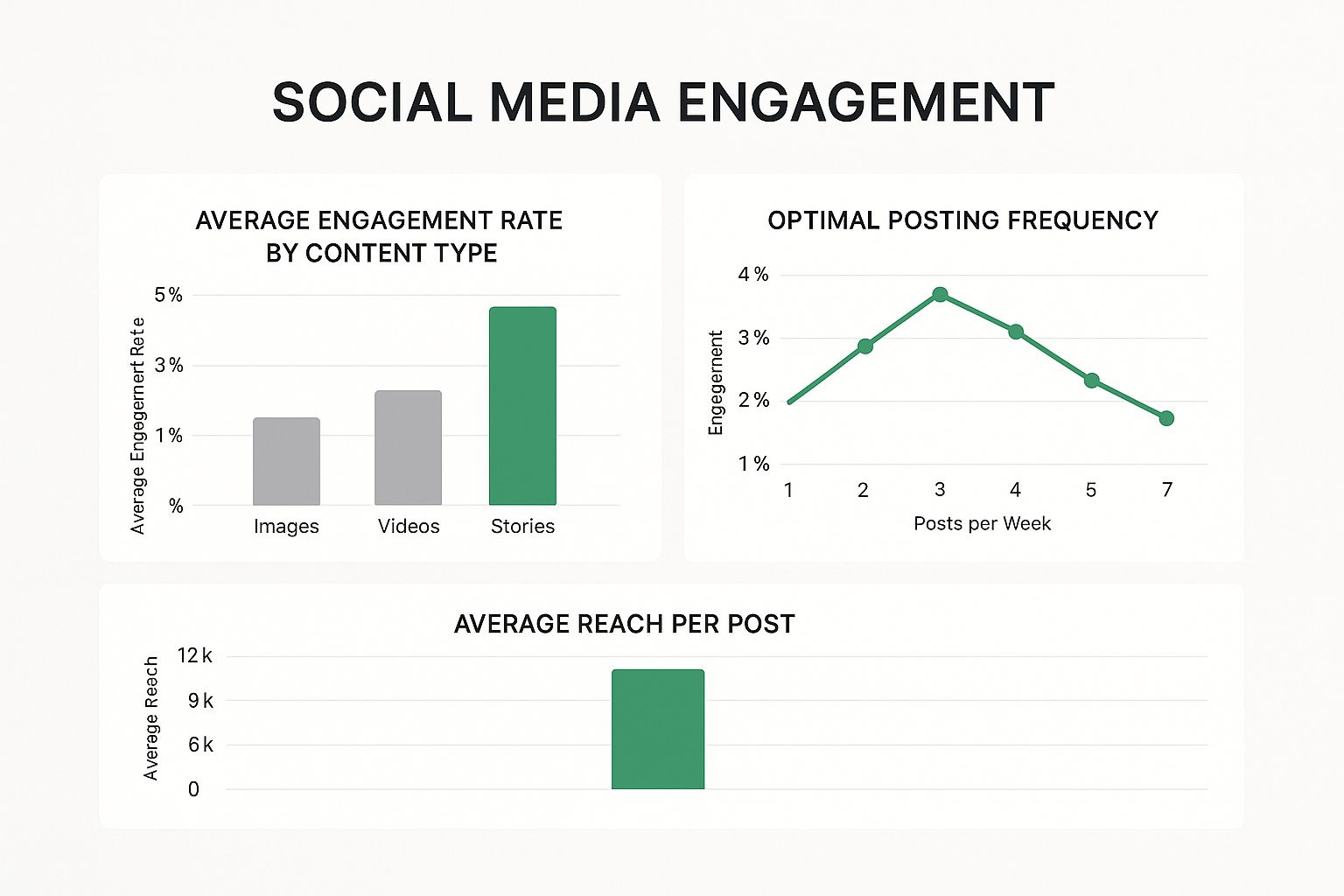
Once you've built a foundation of trust, the next critical element is displaying properties with stunning visuals. For social media for real estate agents, your photos and videos are frequently the make-or-break point, determining if potential buyers pause to look closer or simply keep scrolling. The aim is to create visuals that don't just earn likes, but actually bring in real leads.
The Art and Science of Compelling Property Imagery
Producing effective property visuals is more than just pointing and shooting. Experienced photographers understand that lighting is paramount; natural light is always preferred, often supplemented to craft warm, inviting interiors. They carefully select optimal angles that make rooms appear spacious and highlight key features, while strategic staging helps potential buyers envision living in the space. These components work together to make properties look truly captivating.
Post-production plays a significant role, too. Effective editing refines colors, sharpens details, and corrects any minor imperfections, making sure each property is presented in its best light online. The impact is clear: homes showcased with professionally edited listing photos experience a remarkable 1,200% increase in social media shares. Explore this topic further to understand key real estate marketing statistics, which show how this expanded reach connects with serious buyers.
Understanding how different content performs on various platforms is essential for an effective social media strategy. The table below offers a comparison of content performance across major social media channels for real estate professionals.
Social Media Platform Content Performance Comparison
A detailed comparison of how different types of real estate content perform across major social media platforms
Instagram: The best content types are high-quality photos, Reels, and Stories (such as property tours and behind-the-scenes content). The optimal posting frequency is 3-5 times per week, with an average engagement rate of 3-6%. It has a medium to high lead generation potential.
Facebook: A mix of photos, videos (like longer property tours), and community news works well. Posting 3-5 times per week is ideal, with an average engagement rate of 1-3%. This platform has high lead generation potential.
LinkedIn: Focus on market updates, professional advice, and luxury property listings. Posting 2-3 times per week is recommended, with an average engagement rate of 2-4%. It offers medium lead generation potential, particularly for niche or B2B audiences.
YouTube: In-depth property tours and neighborhood guides perform best. Posting 1-2 times per week is optimal, and while engagement is measured by watch time, the lead generation potential is high.
TikTok: Short, engaging videos—such as quick tips or before/after property conversation—are ideal. Post frequently, 5-7 times per week, to achieve an average engagement rate of 5-10%. This platform is great for brand awareness, with medium lead generation potential.
This comparison highlights that platforms like Instagram and TikTok thrive on visually engaging, short-form content, while YouTube is ideal for more detailed presentations. Facebook offers a versatile mix, and LinkedIn suits more professional, market-focused updates. Higher engagement rates don't always directly translate to higher lead quality, so a balanced approach is key.
Mastering Video Content for Maximum Impact
Video offers a dynamic and engaging way to showcase properties, going far beyond what static images can convey. Virtual tours, for instance, allow prospective buyers to "walk through" a home from anywhere in the world, giving them a real sense of its layout, features, and overall atmosphere. This type of rich, engaging content is incredibly valuable for social media for real estate agents looking to capture attention.
Maintaining consistent visual quality across all your video productions is vital for projecting a professional image. This doesn't necessarily mean expensive gear; even a modern smartphone can produce great results with proper technique, stable shooting, clear audio, and thoughtful editing. Consistency in quality helps reinforce your brand and build credibility with your audience.
This infographic visualizes key data on social media content performance for real estate agents, including average engagement rates by content type, optimal posting frequency versus engagement, and average reach per post.
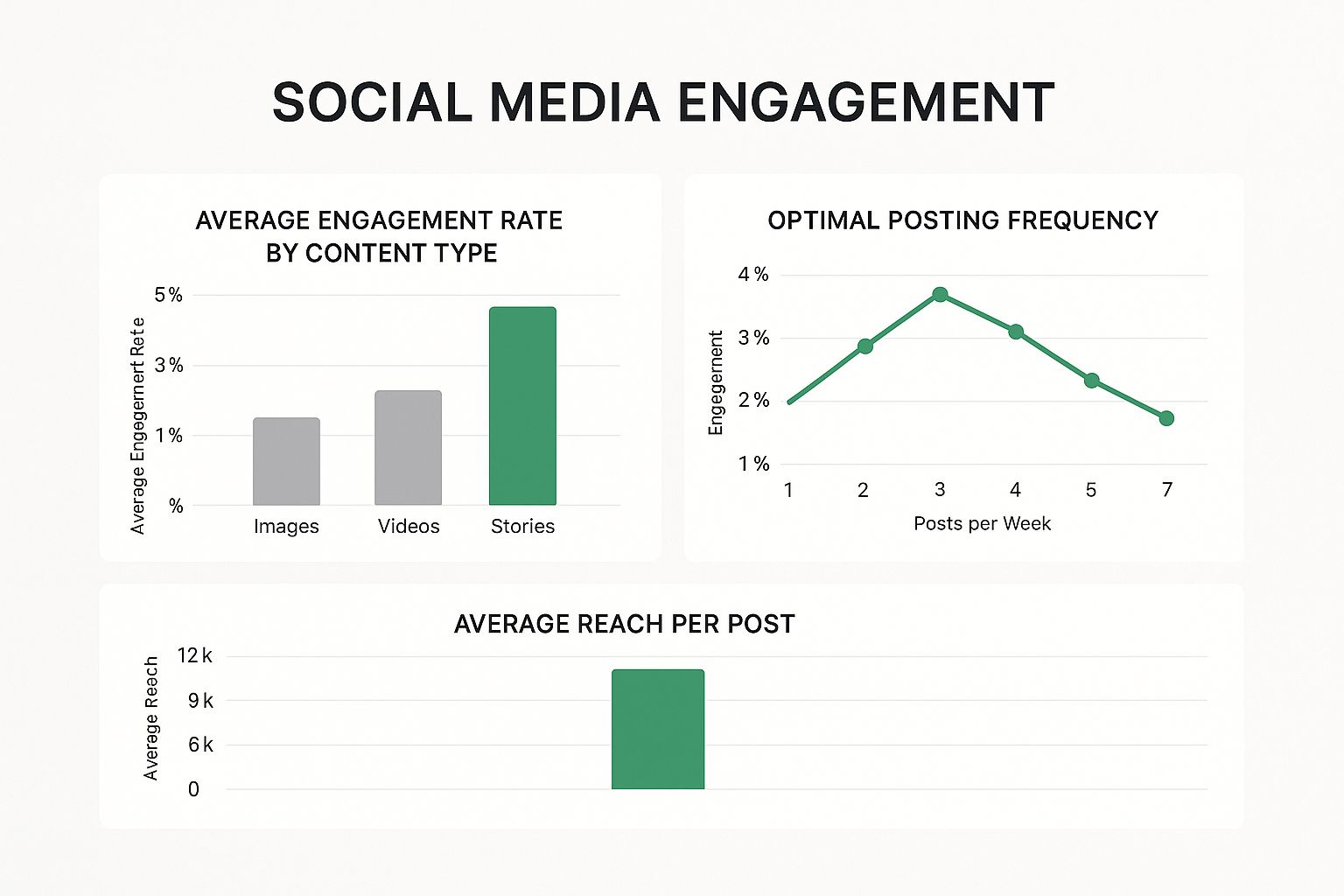
The data generally shows that video content often achieves higher engagement. Furthermore, a well-considered posting schedule is important for maximizing your reach without overwhelming your followers.
Practical Strategies for Scroll-Stopping Content
It's smart to adjust your visual approach based on the type of property you're marketing. A cozy starter home might benefit from warm, inviting photographs, whereas a luxurious estate could call for more dramatic and aspirational visuals. Tailoring the story your visuals tell to the likely buyer can significantly boost a property's appeal.
You don't always need a massive budget to create high-quality visuals. By focusing on the fundamentals of good lighting and thoughtful composition, you can make a big impact. Simple staging techniques, such as decluttering and adding a few well-chosen accessories, can also greatly enhance how a property looks. Remember, good visuals are an investment, not an expense, often leading to quicker sales and better offers.
Choosing Your Platforms for Maximum Impact

Once you've recognized that creating compelling visuals is a worthwhile investment, the next important step is figuring out where to display them for the best results. A common pitfall is trying to maintain an identity on every social media outlet. Instead, effective social media for real estate agents depends on focused effort, not spreading yourself too thin.
Choosing the right platforms wisely makes sure your carefully crafted content reaches the right eyes. This involves knowing which channels your target audience uses regularly and which ones align best with your real estate brand’s goals. Such a strategic approach can save considerable time and greatly improve your return on investment.
Understanding the Social Media Landscape for Real Estate
Different social media platforms come with their own distinct advantages and attract varied user activities. This makes some more fitting for social media for real estate agents compared to others.
Here's a look at some key players:
Facebook: This platform remains a dominant force, boasting a massive user base of over 3 billion monthly active users. It’s quite adaptable, supporting various content forms like photos, videos, community news, and detailed property listings. Its advanced advertising tools allow for precise targeting, which is why 87% of Realtors actively use it.
Instagram: Known for its strong visual appeal, Instagram is perfect for showcasing beautiful property photos and dynamic video content such as Reels and Stories. It has over 2 billion active users, with a significant 60% falling into the 18 to 34 age group. This makes it an excellent choice for connecting with younger demographics and building brand recognition, leading 62% of Realtors to use the platform.
LinkedIn: For professional networking and establishing yourself as a thought leader, LinkedIn is the primary destination. It connects over 1 billion active users, mainly professionals aged 30-49, making it useful for sharing market analysis, networking with industry peers, and reaching affluent or investor clients.
Emerging Platforms: Keep an eye on newer platforms like TikTok, particularly if your target audience includes Gen Z or millennials. Currently, about 15% of Realtors are trying out TikTok, using its short-form video style for inventive property tours and behind-the-scenes glimpses.
Grasping these individual characteristics helps you shape your social media strategy for real estate agents more effectively.
Identifying Where Your Ideal Clients Spend Their Time
The most vital part of choosing your platforms is understanding where your ideal clients are most engaged. Sharing amazing content on a platform your target audience barely visits is like throwing an open house but forgetting to send invitations to potential buyers.
To discover the most suitable channels for your efforts:
Analyze Your Current Clientele: Think about the demographic details of your past successful clients. Which online spaces do they frequently use?
Research Competitors: Observe where successful agents in your local market are most present and achieving good engagement. This can offer insights into local audience habits.
Survey Your Audience: Don't be afraid to inquire with new leads or former clients about the social media platforms they use most often when looking for properties or researching agents.
Utilize Platform Analytics: Once you start posting, make it a habit to review the analytics provided by each platform. This information will show which channels bring the most interaction and leads for your content.
By concentrating your energy on two or three key platforms where your target demographic is clearly active, you can use your time and money more productively. This focused approach is essential for a successful social media plan for real estate agents, ensuring your message connects with qualified prospects and delivers maximum impact.
Content Strategies That Generate Quality Leads
So, you've figured out which social media platforms work best for your real estate business. Great! The next big step is creating content that truly grabs attention and turns lookers into leads. Just posting pretty pictures of properties won't cut it; your approach to social media for real estate agents needs a plan that brings in quality leads and builds real relationships. This means thinking smart about what you share, not just posting for the sake of it.
Become the Go-To Local Expert
If you want to make a mark, your content should show everyone you're the authority on your local market. This involves regularly sharing information that proves you know the ins and outs of the local real estate scene. For example, neighborhood spotlights are a fantastic way to do this. These posts can highlight what makes different communities special, like local parks, great schools, new coffee shops, or handy amenities, showing people exactly why they’d love to live there.
Publishing consistent market analysis content and updates also demonstrates your professional know-how. Share easy-to-understand data about recent sales, price movements, or how much inventory is available in the areas you serve. Given that a significant 52% of quality leads for real estate agents are said to come from social media, providing this expert information can grab the interest of serious buyers and sellers seeking smart advice. Sharing these valuable insights regularly builds trust and confirms your status as an expert.
Empower Through Education
Beyond just numbers and market stats, educational content is key for guiding potential clients. Since 47% of homebuyers begin their property hunt online, offering them answers and clear direction from the get-go can really make you stand out. Consider the usual questions that buyers and sellers ask, and make content that answers them head-on.
For instance, you might create:
Helpful guides for first-time homebuyers explaining the whole buying journey.
Practical tips for sellers on how to stage their home to attract buyers and sell faster.
Useful checklists for moving day, or simple explanations of common real estate terms.
This kind of content quietly shows off your knowledge without being pushy. When you help people make smart choices, they start to see you as a reliable advisor, making it more likely they’ll choose you when they’re ready to buy or sell.
Designing Your Ideal Content Mix
Having a mix of different types of well-thought-out content is important for keeping your audience interested and meeting their needs at various points in their property journey. Not every post has to be about a new listing; a good balance includes informative articles, community features, and even some personal touches. A content calendar is a fantastic tool for staying consistent and on track with your strategy. For more specialized ideas that fit with your chosen platforms, you might look into resources for real estate agents that can provide extra inspiration.
To help you map this out, here's a template for a real estate social media content calendar. This list breaks down different content types and suggests how often to post them for the best results on social media.
Real Estate Social Media Content Calendar Template
A strategic breakdown of content types and posting frequency for optimal real estate social media performance
Market Updates: Post once a week, ideally on Monday mornings or Friday afternoons. The primary goal is to establish authority. Example topics include "Local Market Stats for [Month]" and "Interest Rate Changes Explained."
Neighborhood Spotlight: Share 1-2 times per month, preferably on Saturday mornings. This content showcases local expertise. Example topics are "Hidden Gems in [Neighborhood]" and "Why Families Love [Area]."
Educational Tips (Buyer/Seller): Post twice a week, on Tuesday or Thursday mid-mornings. The goal is to build trust and nurture leads. Examples include "5 Tips for First-Time Homebuyers" and "Staging Your Home to Sell Fast."
New Listing/Open House: Post as needed, 2-3 days before the event. The focus is on generating leads and driving traffic. Examples: "Just Listed: [Address]" and "Open House This Sunday!"
Behind-the-Scenes/Personal Content: Share once a week, ideally on Friday afternoons. This humanizes your brand and builds connections. Examples: "A Day in My Life as an Agent" and "Community Event I Attended."
Client Testimonials/Success Stories: Post 1-2 times per month, preferably on Wednesday at midday. The goal is to build social proof. Examples: "Happy Clients: The [Family Name] Story" and "SOLD! Another Success."
Using a planned system like this helps you provide a steady stream of useful content. This keeps your audience engaged and carefully leads them toward working with you.
Sparking Conversations That Convert
At the end of the day, your content should aim for meaningful engagement that starts actual conversations. While likes are good, it's the comments, shares, and direct messages that build connections. Get people talking by asking questions in your posts, creating polls about what they like locally, or holding Q&A sessions.
Giving "behind-the-scenes" peeks at your work or sharing "day-in-the-life" stories can make you seem more human and easy to talk to, which often gets discussions going. It’s very important to reply quickly and considerately to all comments and messages. These interactions are key moments for building a good relationship, and they can smoothly turn online curiosity into real-life meetings and, finally, closed deals from your social media for real estate agents' activities.
Measuring Success and Optimizing Your Strategy
Making good content is a great start, but the real magic happens when you see how it boosts your real estate business. For your social media for real estate agents plan to truly work, you need to look past simple follower counts. Focus on the data that shows business growth and helps you fine-tune your strategy for even better outcomes.
Key Performance Indicators (KPIs) That Truly Matter
Keeping an eye on the right Key Performance Indicators (KPIs) shows you what your audience loves and what makes them act. Forget about numbers that just look good; focus on the ones that point to real interest and could lead to new clients.
Here are some crucial KPIs for real estate agents:
Engagement Rate: This isn't just about likes. It covers comments, shares, saves, and clicks – all signs of how much people are interacting with what you post. A high engagement rate usually means your content hits the mark. For example, an engagement rate of 3-6% on Instagram is pretty solid.
Reach and Impressions: Reach shows the number of unique people who saw your post. Impressions count how many times your post was shown in total. Both help you see how far your brand's message is spreading.
Click-Through Rate (CTR): This tells you the percentage of people who viewed your post and then clicked a link in it, perhaps to a property listing or your website. A good CTR often means your content and call to action are effective.
Conversion Rate: This is an important one. It tracks how many of your social media interactions become actual leads or clients – think contact forms filled out, calls, or DMs asking for a showing.
Lead Source Tracking: Figuring out which social media platform or specific campaign brings in the best leads helps you put your time and money where they’ll count most.
Regularly checking these KPIs gives you a much clearer idea of which parts of your social media strategy for real estate agents are truly working and bringing in results.
Using Analytics Tools for Actionable Insights
Plenty of tools can help you keep tabs on these KPIs and collect useful data. Many social media platforms provide built-in analytics dashboards at no cost. For instance, Facebook Insights on Facebook and Instagram Insights (available on Instagram) offer in-app analytics about your audience, post performances, and engagement patterns.
Also, Google Analytics is a must-have for seeing how much website traffic your social media brings in. It shows you what visitors do once they're on your site, like which pages they check out or if they sign up for your newsletter. While there are paid tools with more bells and whistles, these free options give you plenty of solid info to improve your social media for real estate agents' results. Good content is essential for getting leads, and you can discover more ways to use real estate marketing ideas in your data review.
Refining Your Approach with A/B Testing
Want to keep getting better results? A/B testing (also called split testing) is a fantastic way to do it. You just create two versions of something – say, an ad or a post – show each to a different group of people, and see which one works best. For example, you might test:
Different headlines for a blog post you share on LinkedIn.
Various photos or videos for a property listing on Facebook.
Different calls to action, like 'Learn More' versus 'Book a Showing'.
Posting at different times of day or on different days of the week.
By testing one thing at a time and looking at the results, you can make smart, data-backed choices about your messages, visuals, and general plan. This step-by-step improvement helps your social media for real estate agents get better and better. It allows you to pinpoint what grabs people's attention and encourages them to connect, which is crucial for getting the most from your efforts and growing what’s successful.
Key Takeaways
We've looked at how to track and improve your social media game. Now, let's boil those ideas down into a straightforward plan. These key points are your go-to guide for turning social media for real estate agents into a real asset for your business, concentrating on steps you can take right away.
Your Social Media Success Roadmap
Making social media work for you means having a solid plan. This covers everything from creating your profiles to connecting with potential clients. The following checklists provide a clear route to enhance your online presence and how you operate.
Platform Optimization Essentials
To make your social media profiles work harder for you, pay attention to these fundamental details. They are the building blocks of a strong online community.
Complete and Compelling Profiles: Make sure each platform you use has a professional headshot. Your bio should be packed with relevant keywords, clearly state what you offer and your service areas, and include a direct link to your website or how you prefer to be contacted. For instance, your Instagram bio needs to quickly inform visitors about your specialty and the neighborhoods you cover.
Consistent Branding: Apply the same logo, color palette, and general brand voice across all your active social media channels. This helps people recognize your brand and strengthens your professional image, ensuring your social media efforts for real estate agents feel connected.
Clear Calls to Action (CTAs): Every post or profile element should tell users what their next step is. This could be "DM for details," "Visit our website for more listings," or "Download our free homebuyer's guide."
Regular Audits: Check your profiles at least once every three months. Ensure all information is current, links are functional, and your approach fits with the latest market conditions and platform changes.
Content Creation Workflow
Creating great content consistently requires a plan. A well-thought-out workflow helps you stay on track and deliver value to your audience.
Strategic Content Calendar: Map out your content at least one month ahead. Include a variety of posts: listings, informative content (like market updates or home buying tips), community highlights, and a peek behind the scenes. This keeps your feed balanced and interesting.
Emphasis on High-Quality Visuals: It’s wise to use professional photos and videos for your listings. For your regular posts, too, make sure your images and videos are bright, sharp, and attractive. Good visuals are key to grabbing attention and sparking interest.
Mobile-First Approach: Create and check all your content based on how it looks on a mobile phone. Most people use social media on their smartphones, so test your posts on various screen sizes to ensure they look great everywhere.
Lead Nurturing Process
Once you start getting engagement, the next step is to turn those interactions into potential leads. A systematic approach to nurturing these connections is vital.
Timely and Personalized Engagement: Answer comments and direct messages quickly and genuinely. Avoid generic responses, as they can seem impersonal. Customize your replies to address each person's specific question or comment.
Transition to Offline Conversations: Look for chances to shift promising online chats to a phone call, email, or face-to-face meeting. For example, if someone sends a direct message with detailed questions about a property, propose a brief call to discuss it further.
Systematic Lead Tracking: Employ tools like UTM parameters or integrate with your Customer Relationship Management (CRM) system to monitor which social media actions are bringing in leads. This information is essential for improving your social media plan for real estate agents.
Navigating Pitfalls And Measuring Real Progress
Knowing what to avoid is as critical as knowing what to do. Steering clear of frequent errors and concentrating on significant measurements will ensure your social media for real estate agents approach stays effective and yields results.
Warning Signs: Common Missteps To Avoid
Certain habits can undermine your social media efforts. Be aware of these common blunders to ensure your strategy remains effective.
Inconsistent Posting: Disappearing for weeks and then posting a barrage of content can confuse your followers and negatively impact your reach due to platform algorithms. Strive for a consistent and predictable posting schedule.
Ignoring Engagement: Social media is about interaction. Not replying to comments or direct messages can make you seem distant and uninterested, which can harm potential client relationships.
Purely Promotional Content: If all your posts are about sales ("New Listing!", "Open House!"), your audience will likely lose interest. It's important to mix promotional content with posts that offer value, education, or entertainment. A good guideline is the 80/20 rule: 80% value-driven content and 20% promotional.
Poor Quality Visuals: Blurry photos or unstable, dim videos can create a poor impression of your brand and the properties you're showcasing. This can significantly put off potential clients.
Success Benchmarks: Metrics That Drive Growth
To truly understand if your social media is working, you need to look at the right numbers. Focus on these key indicators to measure your progress and growth.
Move your attention from superficial numbers like total follower count to engagement rates. This includes likes, comments, shares, and saves per post compared to your number of followers, showing real audience interest.
Keep an eye on Click-Through Rates (CTR) for links you share in posts or your bio. Pay special attention to links directing to property listings, market analysis, or lead generation forms on your site.
Count the number of qualified leads you get directly from social media each month. These are inquiries from people genuinely interested in buying or selling.
Use tools like Google Analytics to examine website traffic referrals from your social channels. This helps you see how social media supports your wider online strategy and lead generation process.
By focusing on these practical steps and important metrics, your social media for real estate agents activities will become a more precise and productive part of your marketing plan, delivering concrete business outcomes.
Want to step up your Instagram strategy and convert followers into clients? Gainsty’s AI social assistant is built for real estate professionals aiming for natural growth and real connections. Take the guesswork out of your social media. Learn how Gainsty can change your Instagram followers!
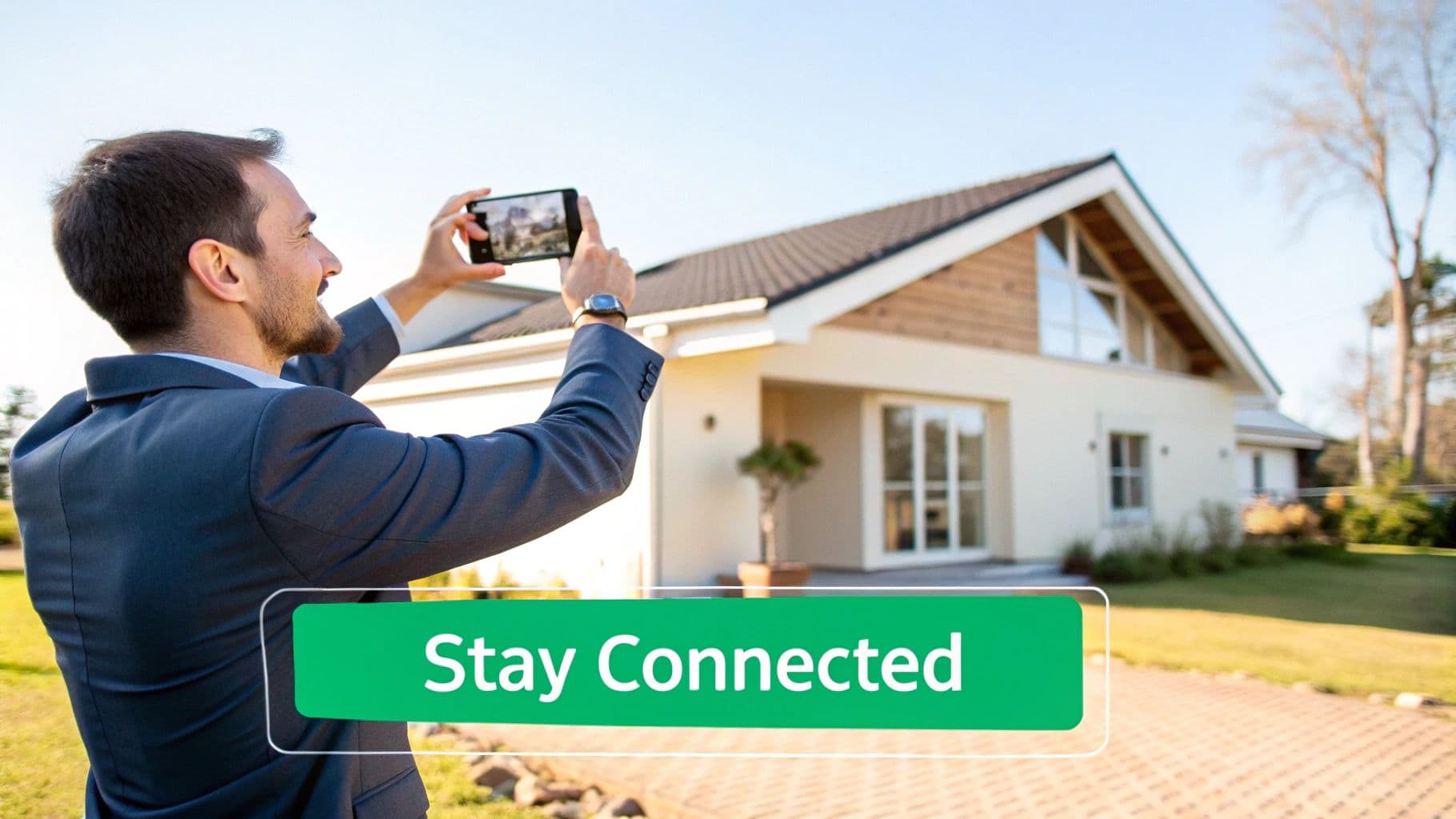
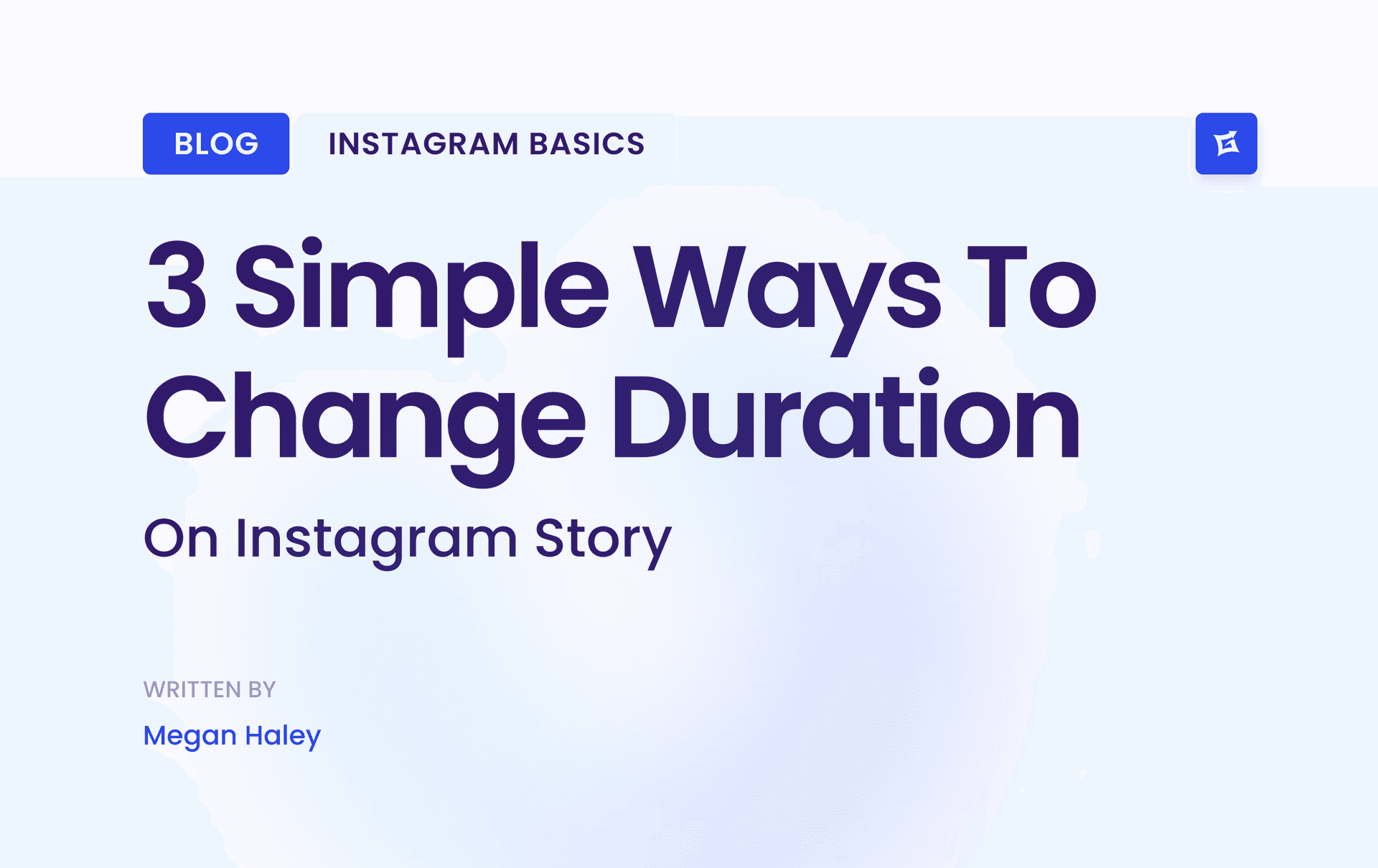
.png&w=1920&q=75&dpl=dpl_9DcYP2NuFLTqKMAhBiU5bD91BKJm)
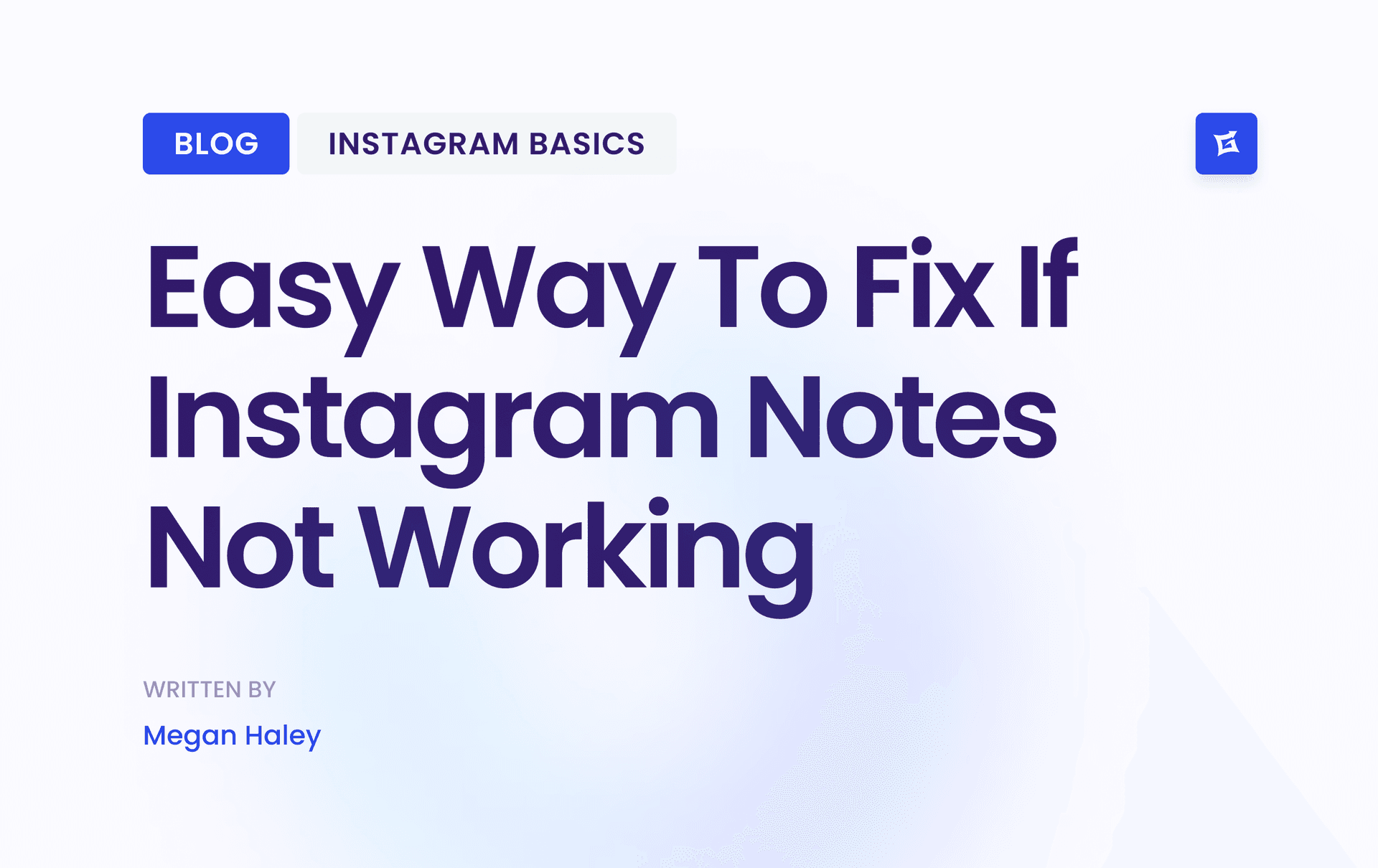
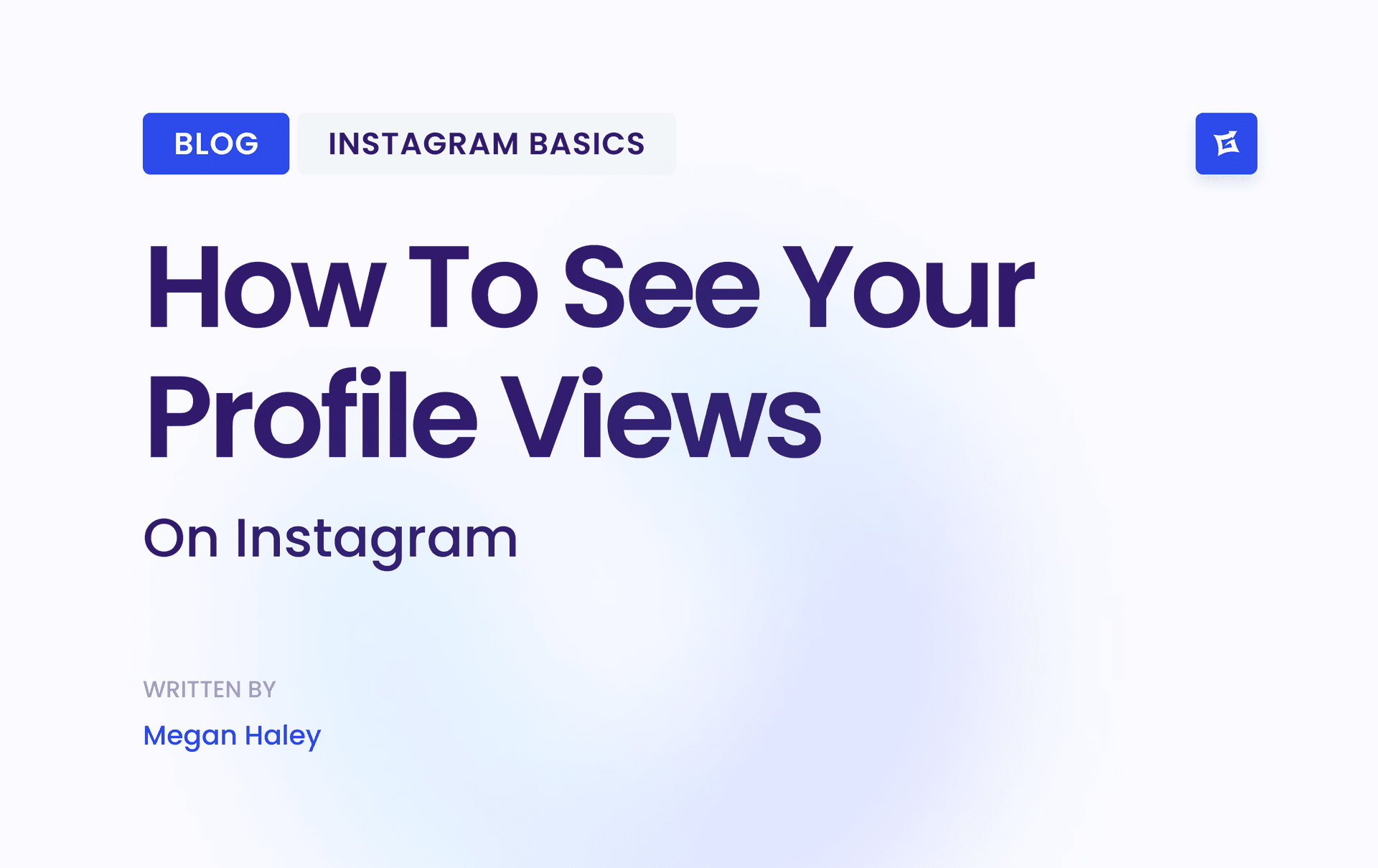
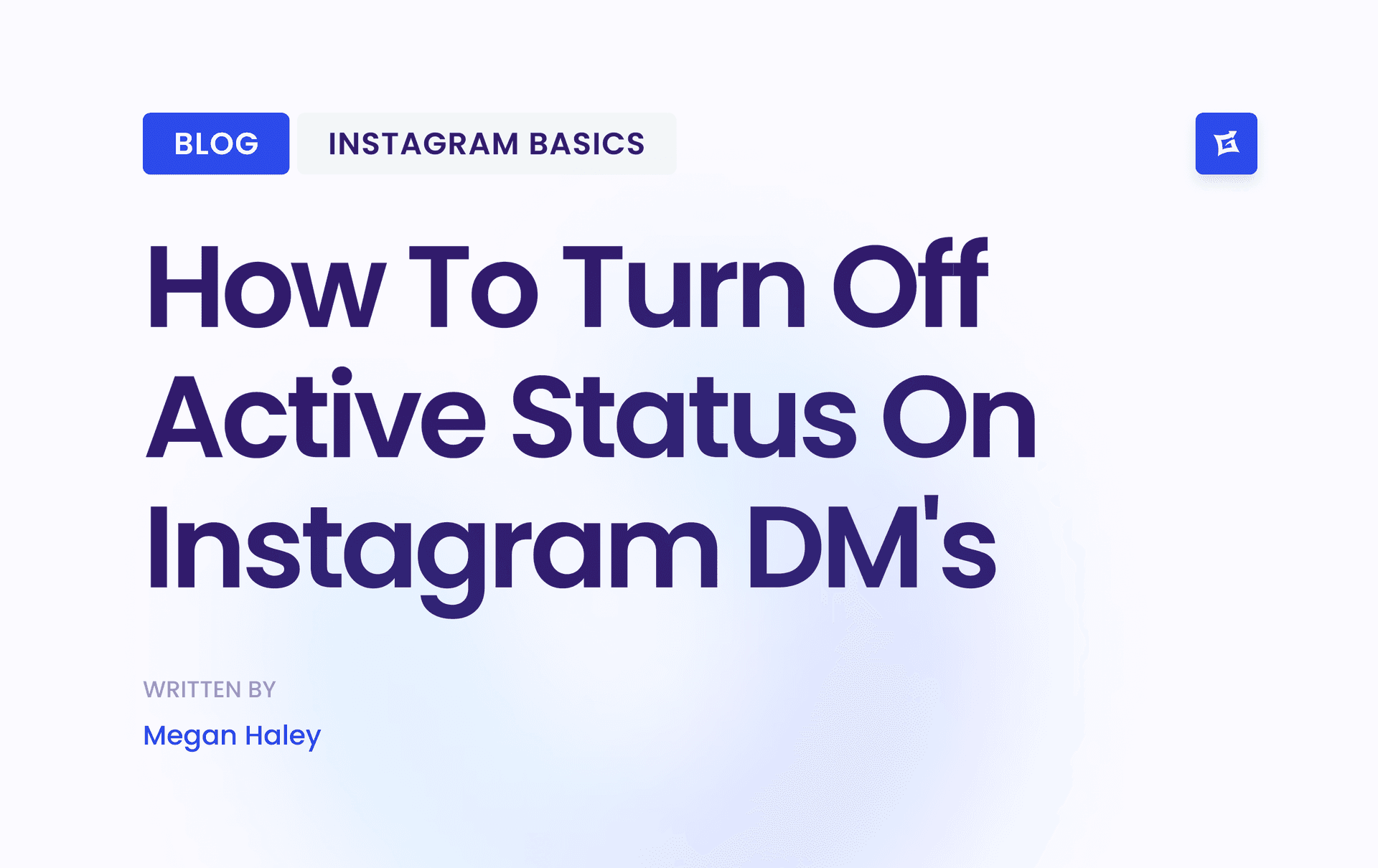
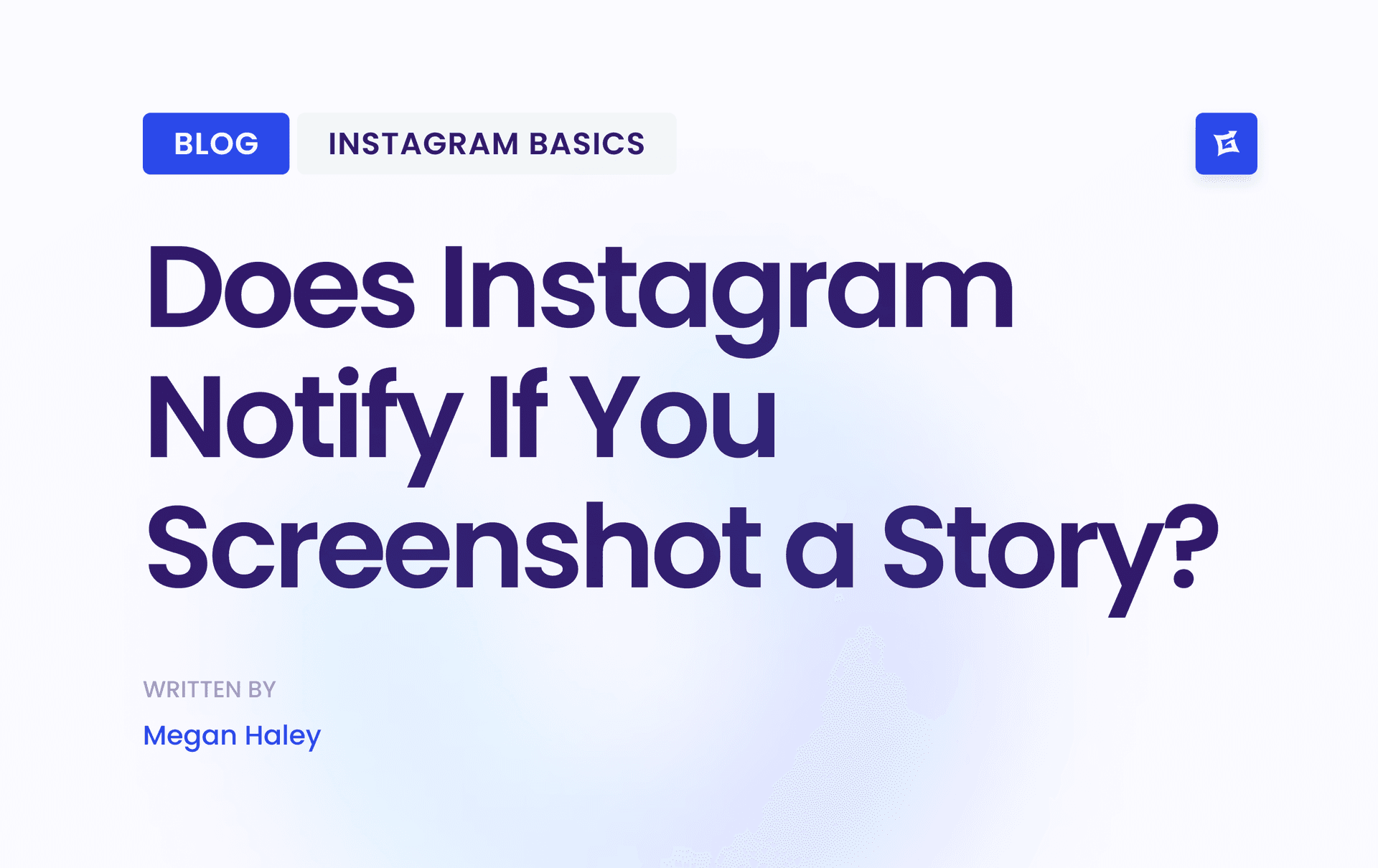



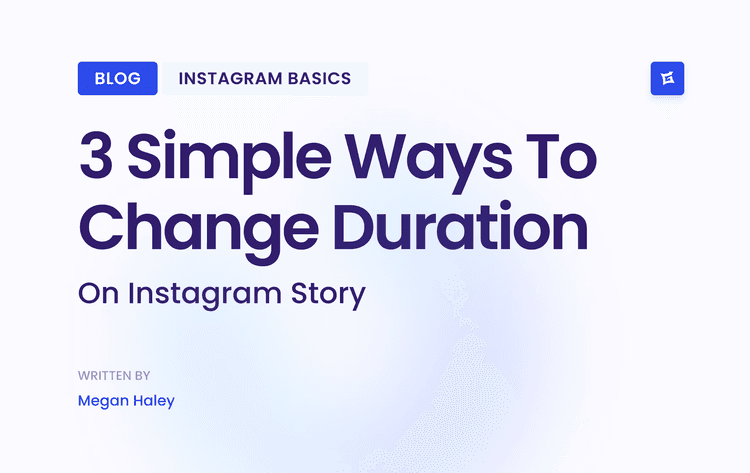
.png&w=750&q=75&dpl=dpl_9DcYP2NuFLTqKMAhBiU5bD91BKJm)
